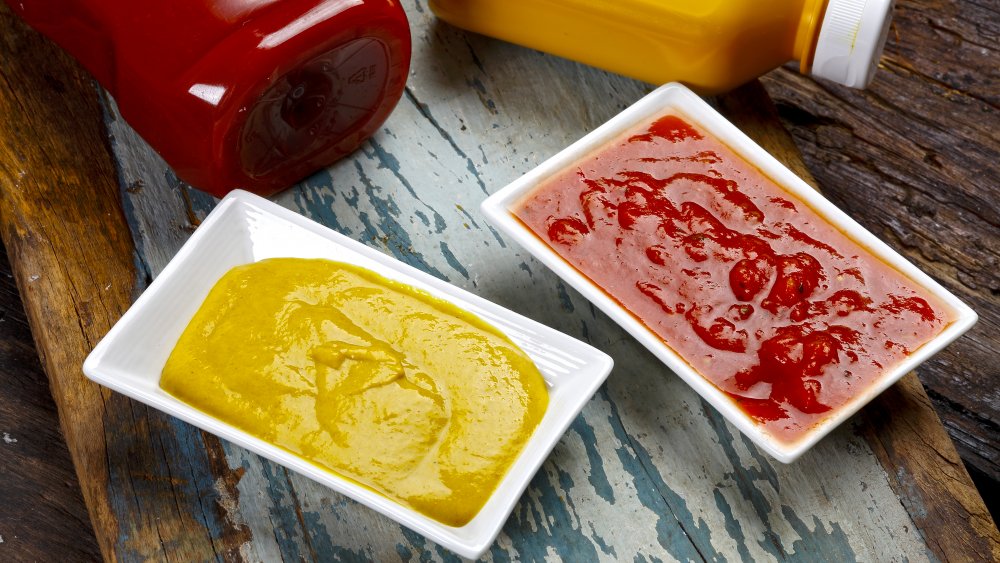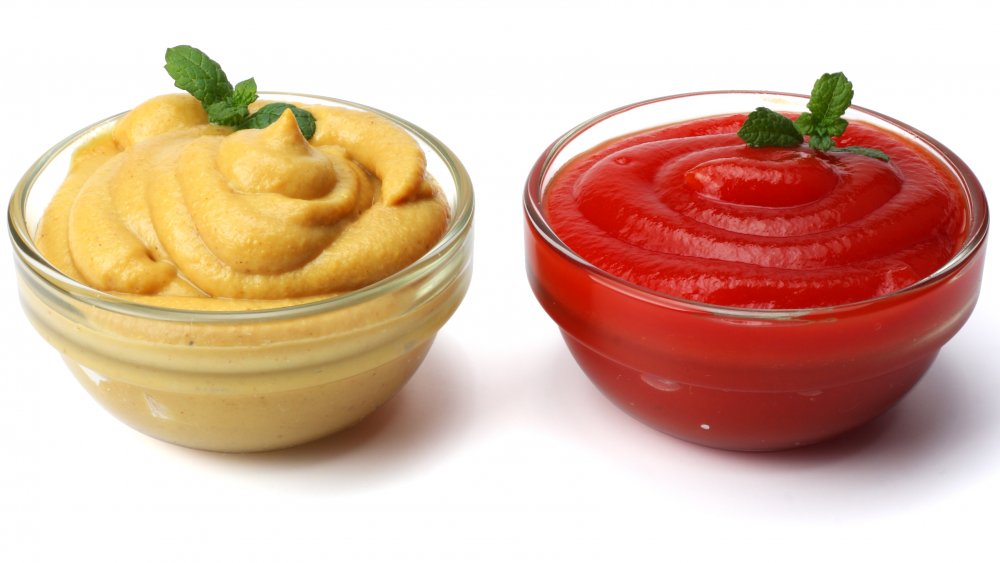Mustard Vs Ketchup: Which Has Better Nutritional Value?
In the Western fast-food culture, ketchup and mustard are to condiments what salt and pepper are to spices. Sure, they're not quite as all-encompassing as the base spices. You'd probably attract some weirded-out looks smearing mustard on your pizza, and good luck with the locals if you ever ask for ketchup with your Chicago-style hot dog. That being said, most of us probably have a bottle of each lying around, just waiting to make virtually everything tastier.
The thing about ketchup and mustard is that while they're both quite delicious, few people actually expect them to be healthy. They're all about accompanying fast food, after all. Still, if you'd find yourself on a desert island, and were given the option of having an unlimited supply of either condiment to make whatever food you find go down a little easier, which one would you choose in order to keep you alive and healthy just that little bit longer? Let's take a look at which condiment has the better nutritional value.
Mustard is the relatively healthy option
Upstate Nutrition has looked into the nutritional aspects of both mustard and ketchup – as well as mayo, though it's doubtful anyone's going for mayo for its healthy aspects – and found that one condiment is the clear winner for a variety of reasons.
Ketchup is made from tomato, sugar, vinegar, salt, and an assortment of spices and whatnot. Some ketchup players, like Heintz, also include things like high fructose corn syrup in the mix. As such, a tablespoon-sized serving of your average ketchup might be just 15 calories, but it's devoid of proteins and fats, so it's pretty much all sugar. Ketchup's sodium content is also worryingly high, and its sole positive nutritional aspect is that the tomatoes it's made from contain the antioxidant lycopene.
Meanwhile, mustard's flavor game comes from the extraordinarily strong and flavorful mustard seed. As such, mustard recipes tend to include little more than ground mustard seeds, vinegar, water, and whatever spices and flavorings you desire. For instance, the admittedly unhealthy-looking Kroger's Yellow Mustard merely adds some salt, turmeric, and paprika to the three base ingredients to work its magic.
A serving of mustard is just one teaspoon, which sends five or fewer calories at you, contains no fats or sugar, and has considerably less sodium than ketchup. What's more, its flavor is vastly stronger, so you might not even want to use much more. As such, the health-conscious condiment consumer should definitely go for mustard.

